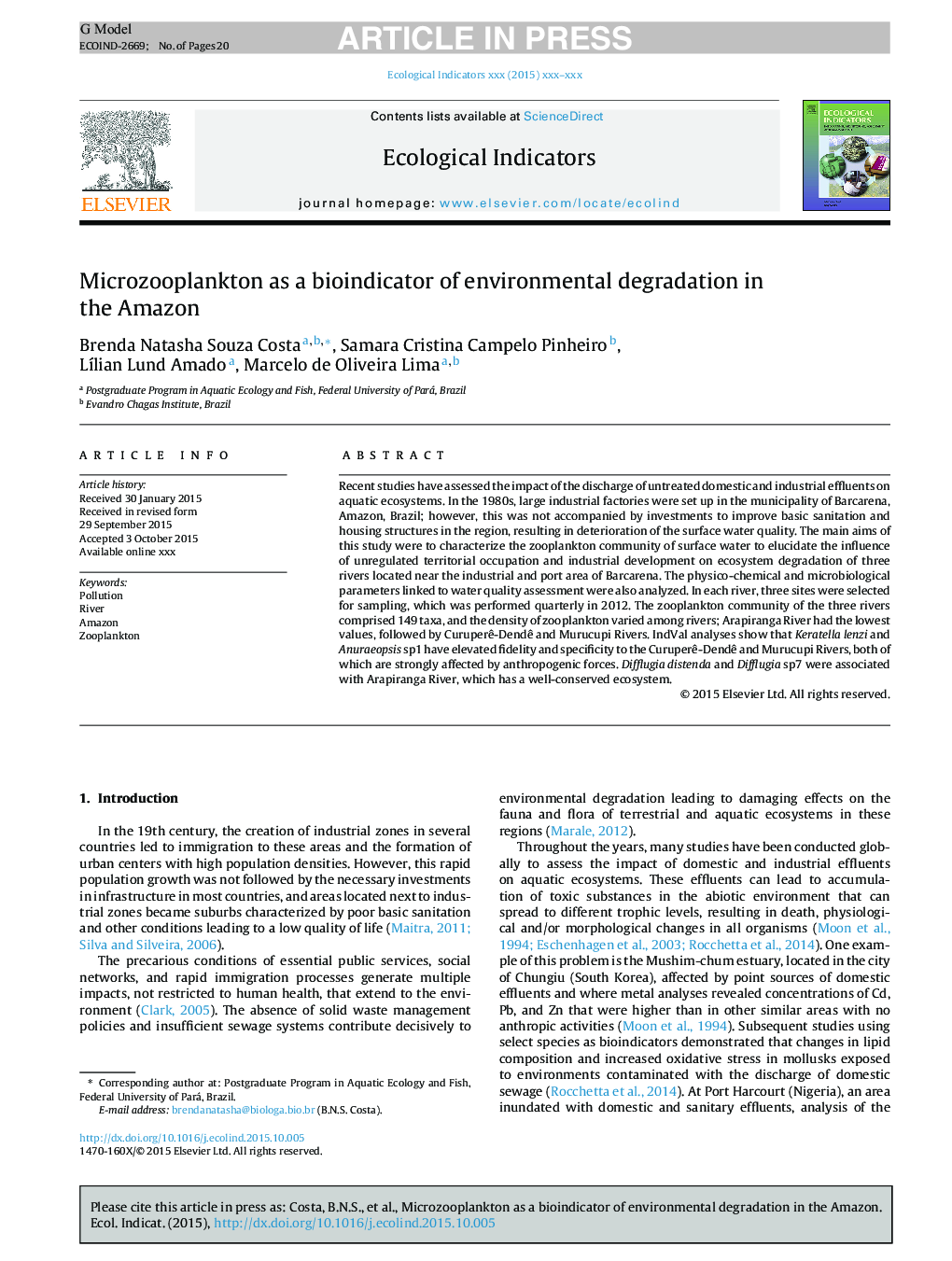| Article ID | Journal | Published Year | Pages | File Type |
|---|---|---|---|---|
| 6293650 | Ecological Indicators | 2016 | 20 Pages |
Abstract
Recent studies have assessed the impact of the discharge of untreated domestic and industrial effluents on aquatic ecosystems. In the 1980s, large industrial factories were set up in the municipality of Barcarena, Amazon, Brazil; however, this was not accompanied by investments to improve basic sanitation and housing structures in the region, resulting in deterioration of the surface water quality. The main aims of this study were to characterize the zooplankton community of surface water to elucidate the influence of unregulated territorial occupation and industrial development on ecosystem degradation of three rivers located near the industrial and port area of Barcarena. The physico-chemical and microbiological parameters linked to water quality assessment were also analyzed. In each river, three sites were selected for sampling, which was performed quarterly in 2012. The zooplankton community of the three rivers comprised 149 taxa, and the density of zooplankton varied among rivers; Arapiranga River had the lowest values, followed by Curuperê-Dendê and Murucupi Rivers. IndVal analyses show that Keratella lenzi and Anuraeopsis sp1 have elevated fidelity and specificity to the Curuperê-Dendê and Murucupi Rivers, both of which are strongly affected by anthropogenic forces. Difflugia distenda and Difflugia sp7 were associated with Arapiranga River, which has a well-conserved ecosystem.
Keywords
Related Topics
Life Sciences
Agricultural and Biological Sciences
Ecology, Evolution, Behavior and Systematics
Authors
Brenda Natasha Souza Costa, Samara Cristina Campelo Pinheiro, LÃlian Lund Amado, Marcelo de Oliveira Lima,
